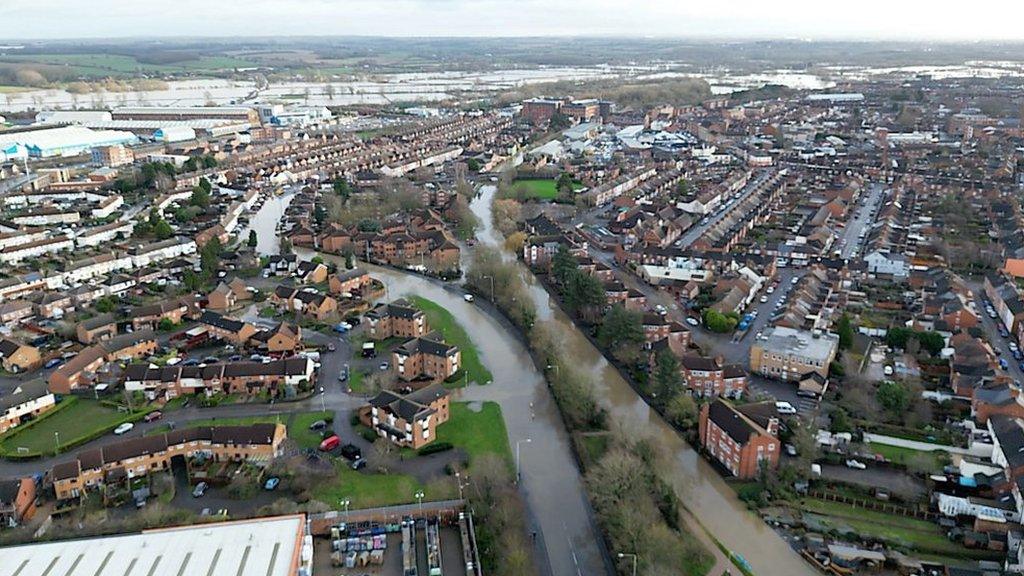Gunthorpe: Villagers felt 'abandoned' when floods arrived
- Published
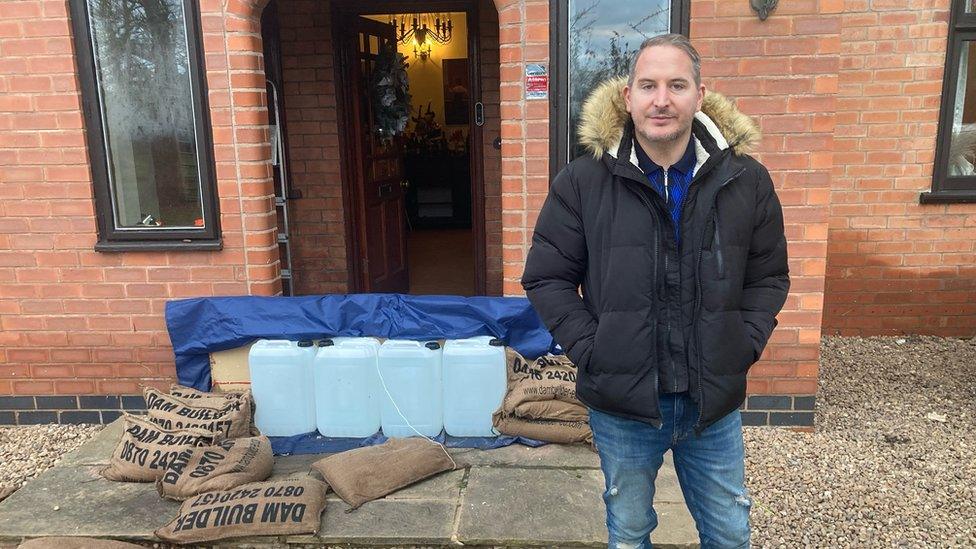
Pete Mabbott built a flood barricade outside his front door, but the water came up through his floor
Residents say they felt "abandoned" when their village was cut off for days following severe flooding.
Villagers in Gunthorpe, Nottinghamshire, were unable to get in and out of the centre, while homes on the outskirts were damaged.
Nottinghamshire County Council declared a major incident along the River Trent following Storm Henk.
However, residents criticised the response from local authorities, saying they had to rely on community support.
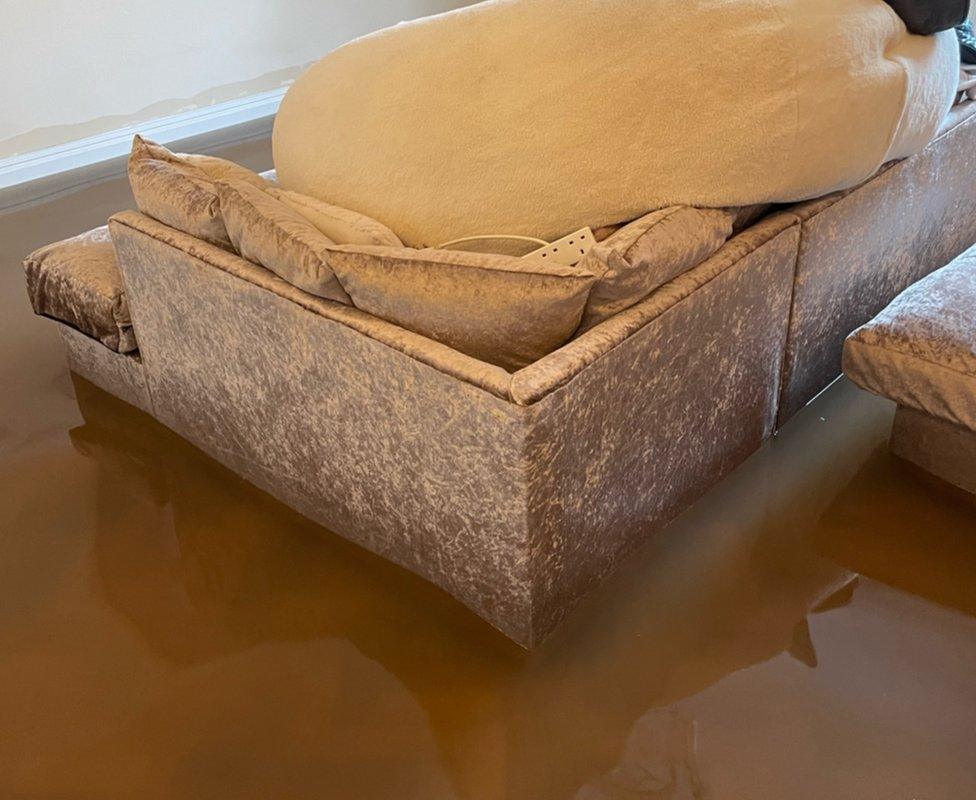
The water was at almost knee height in Mr Mabbott's home
Pete Mabbott, 43, lives with his partner and daughter in Lowdham Road, where the inside of their home saw water levels reach near knee height.
He said: "It didn't come in through the front door. I didn't know this, but the ground gets saturated and it actually comes up through the floor. It just bubbled in. We were looking at the door waiting for it to come in, and it came in behind us through the ground.
"I would sort of describe it a bit like that Titanic film."
With septic tanks nearby, Mr Mabbott said it was "toxic water" that came into the house.
He added it was "very stressful" overnight with no power or heating, as his family could not leave due to the waist-level water outside.
"It flooded in 2000, we were told there would be lots of flood defences and things since then, so I bought it in good faith and renovated it," he said.
It took two years for him to renovate the house, but said it was "back to scratch" after the flood damage.
"Communication was poor. I rang the council on Friday. There was no empathy. They did arrange for the fire service to evacuate us," he said.

Simon Johnson had about 30 messages in one day requesting his help
Simon Johnson, 38, of Main Street, used his Land Rover Defender to help people get in and out of Gunthorpe.
He said: "I just put a message out on the first day, thinking it might be a bit of a flood. Before we knew it, me and Richard Ward [another rescuer] together had about 30 messages. Funerals, flights, prescriptions were a big thing.
"We were lucky after the whole week that there was no casualties."
Mr Johnson said he found a man with multiple sclerosis who was trying to walk a few miles to nearby Bingham to get water and food.
"The flood water was way above his waist," he said.
"Luckily, somebody spotted him and we picked him up and took him to the shops. It could've been a lot worse."

Barry Brigg (left) and David Lloyd said drivers were ignoring road closure signs
On Lowdham Road, residents were trying to stop cars that were ignoring the road closure signs and driving through flood water, sending a bow wave towards people's homes.
Resident Barry Brigg, 59, said: "It was horrendous. We would keep walking out into the road to try and slow the traffic down.
"Some people would be winding their window down and shouting abuse at you for getting in the way because they're trying to get to work.
"You can't just stand there and watch people pushing the water back down people's driveways."
Nottinghamshire Police said it was not responsible for road closures during flooding and it fell within the local authority's remit.
Neil Clarke, cabinet member for transport and environment at Nottinghamshire County Council, said: "It is a partnership working team and it would be easier to point fingers, but I don't really want to get into that.
"At the end of the day, the enforcement of road closures, because it's a highway law enforcement, the clue is in the name."
David Lloyd, 71, also of Lowdham Road, said: "I can't understand why anyone with any sense would go into a flood with a car. It happens every time."
Lisa Cleaver, 55, of Pasture View, said there was a general feeling that the village had been "abandoned and that no-one cared about us".
She said: "One of my big concerns was, a few days before this happened, we had a couple of ambulances come to the flats. Now, there's no way an ambulance would have got through [the flood], so what would they have done?"
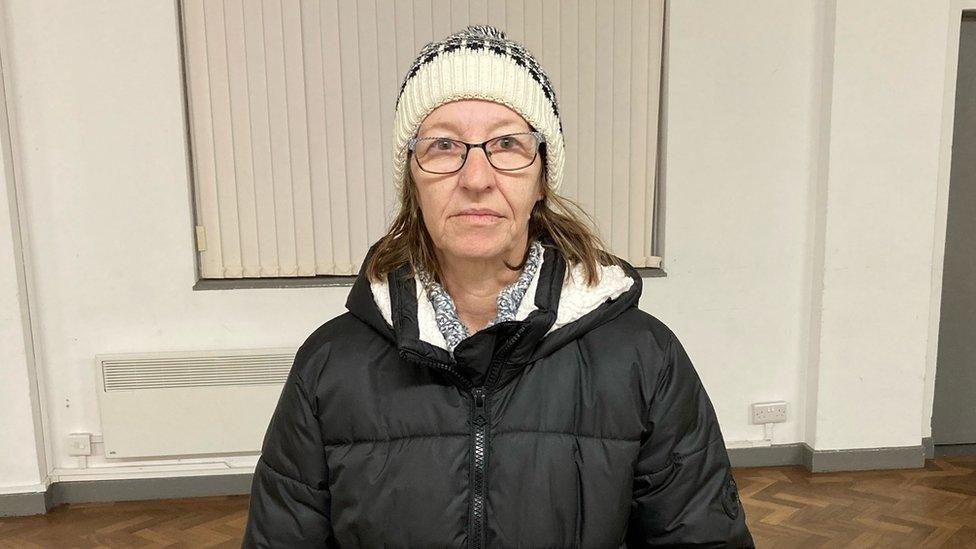
Lisa Cleaver said the community came together after the floods
Mr Clarke denied villagers in Gunthorpe were abandoned.
"This was really an unprecedented scale of water that suddenly came down," he said.
"It equalled previous records here locally at Gunthorpe and Trent Bridge, but it grossly exceeded record levels further down river of Newark.
"What I want to emphasise is the response was a collective partnership agency team working together, county council, district council, environment agency, emergency service, and also, the community volunteers playing a tremendously important part and I'm grateful for their work as well.
"The problem is that with the amount of work and the scale of the problem, our first duty is the risk to life. Some people did end up in the river.
"If there are other emergencies happening elsewhere, it is difficult to be in every place all at the same time.
"The council did put out a lot of flood alerts on the website and social media prior to the flood event happening and that was in co-ordination with the district councils and emergency services.
"There has been a lot of flood prevention work since 2000. We've had both the secretary of state for Defra and the flooding minister up here visiting to see for themselves. They are supporting a further bid for flood prevention."
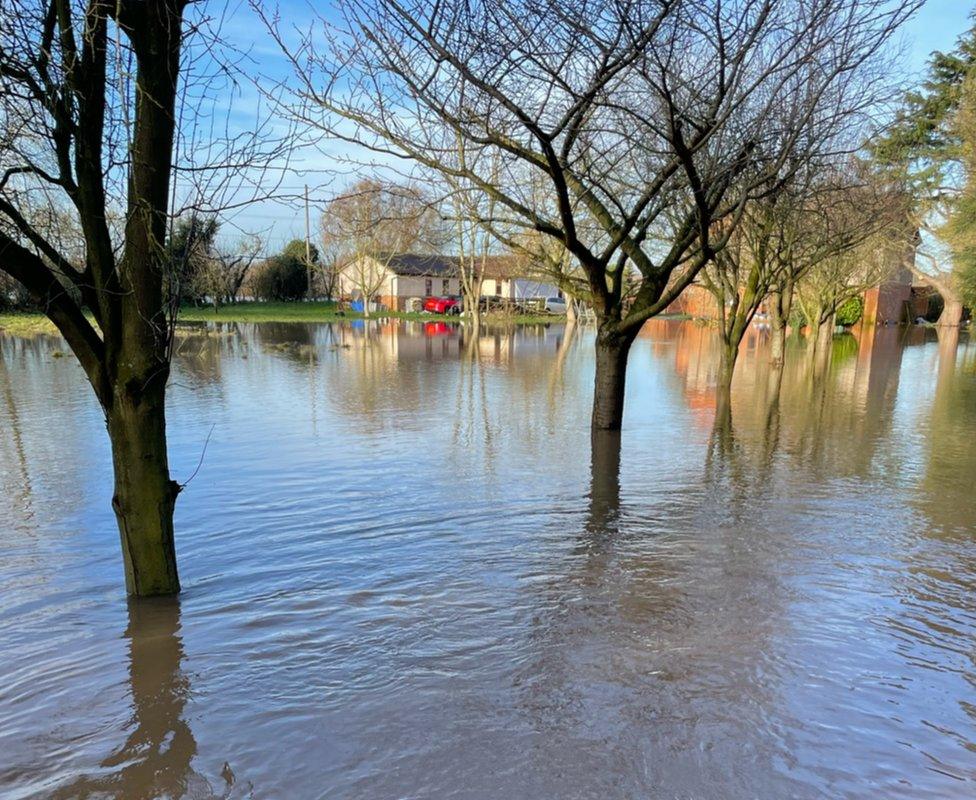
The water reached waist height in Mr Mabbott's garden
Paul Peacock, leader of Newark and Sherwood District Council, said: "We are sorry that some residents feel let down by the support that they received during Storm Henk.
"During the course of the floods, we were in regular contact with flood wardens, including in Gunthorpe, but were simply unable to have a visible presence in some communities that were cut off by flood waters.
"When it became possible to access the village, our officers visited residents in Gunthorpe more than once a day on 4, 5 and 6 January and returned [on Monday], as well as calling some of our residents in the area who are affected."
Mr Peacock added a "huge injection" of investment was needed to better protect the village from future storms.
"Like any event, we will reflect back on our work to inform future efforts but I know that our officers were working completely and utterly flat out, supporting our communities all over Newark and Sherwood," he said.
An Environment Agency spokesperson said: "We continue to coordinate our 24/7 response to Storm Henk, which includes issuing and updating flood warnings, monitoring river levels, undertaking checks at key locations, clearing debris from streams, and unblocking culverts so that flood water can move quickly through the system and rivers are flowing as best they can."

Follow BBC East Midlands on Facebook, external, on X, external, or on Instagram, external. Send your story ideas to eastmidsnews@bbc.co.uk, external.
Related topics
- Published7 January 2024
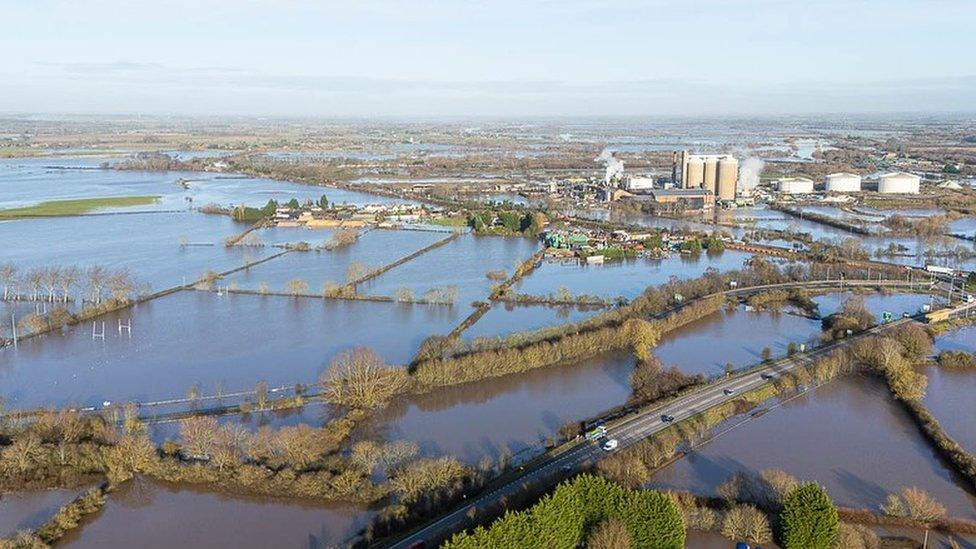
- Published4 January 2024
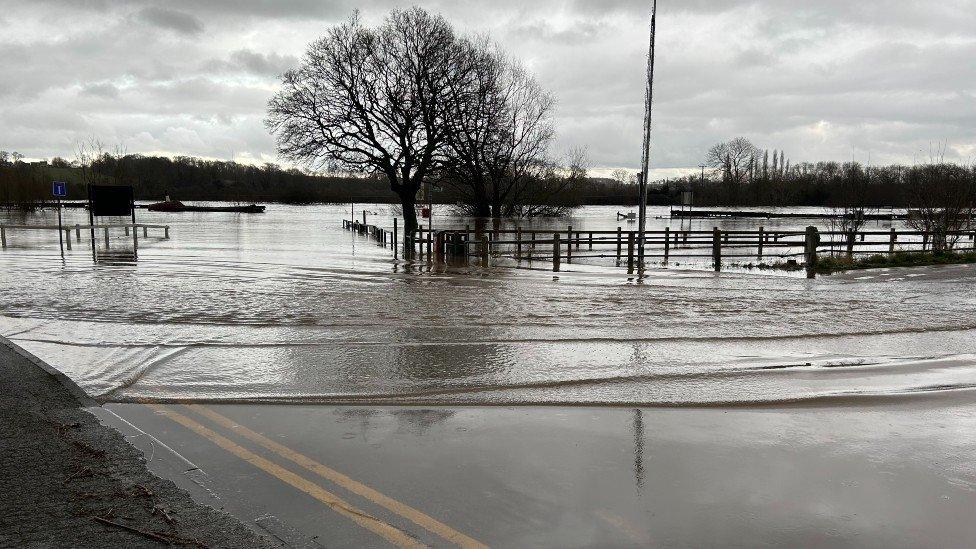
- Published3 January 2024
